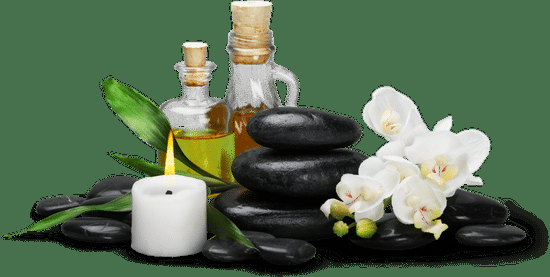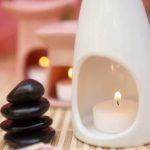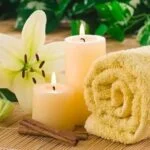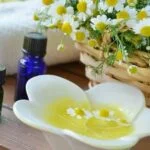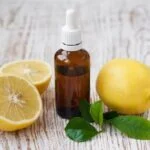Aromatherapy, the practice of using essential oils for therapeutic purposes, has gained popularity in recent years for its various health benefits. In English, the term “aromatherapy meaning” refers to the holistic healing approach that harnesses the power of aromatic plant extracts to enhance well-being. The concept of aromatherapy dates back to ancient civilizations like Egypt, China, and India, where fragrant oils were used for medicinal and spiritual purposes.
Throughout history, aromatherapy has evolved from being a traditional practice to a mainstream form of alternative medicine. Its roots can be traced back to early civilizations where essential oils were extracted from plants and used in rituals, ceremonies, and healing practices. Over time, different cultures have developed their unique techniques and applications of aromatherapy, contributing to its diverse range of uses today.
One of the main advantages of aromatherapy is its ability to promote relaxation, reduce stress, and improve mood. Through inhalation or topical application of essential oils, individuals can experience emotional and physical benefits that aid in overall well-being.
Additionally, aromatherapy is known for its potential therapeutic effects on various health conditions such as headaches, insomnia, and anxiety. As we delve deeper into the world of aromatherapy in English, we will uncover the numerous benefits it offers for both mind and body.
History of Aromatherapy
Aromatherapy has a rich history that dates back thousands of years, with the concept rooted in ancient civilizations such as Egypt, China, and India. The term “aromatherapy” itself was coined by French chemist René-Maurice Gattefossé in the early 20th century after he discovered the healing properties of lavender essential oil. However, the use of aromatic plants for medicinal and therapeutic purposes can be traced back to much earlier times.
In ancient Egypt, aromatic substances were used in religious rituals, embalming processes, and for their healing properties. The Egyptians utilized essential oils from plants like frankincense, myrrh, and rose for both physical and spiritual well-being.
Similarly, in China, traditional Chinese medicine incorporated the use of aromatic herbs and oils to balance the body’s energy systems. The practice of aromatherapy also has deep roots in Ayurveda, an ancient Indian healing system that utilizes essential oils derived from plants like sandalwood, jasmine, and peppermint.
As time progressed, aromatherapy evolved from ancient practices into a more structured form of alternative medicine. In the 20th century, influential figures like Gattefossé and later on Madame Marguerite Maury further popularized the use of essential oils for therapeutic purposes. Today, aromatherapy continues to gain recognition as a holistic approach to health and well-being that focuses on the mind-body connection through the use of aromatic plant extracts.
Benefits of Aromatherapy
Aromatherapy, derived from the words aroma and therapy, is a holistic healing treatment that uses natural plant extracts to promote overall well-being. The practice of aromatherapy dates back thousands of years, with ancient civilizations harnessing the power of essential oils for medicinal purposes. In modern times, aromatherapy has become increasingly popular as a natural alternative to conventional medicine for various health and wellness benefits.
Listed below are some of the key advantages of using aromatherapy:
- Stress Relief: One of the most common uses of aromatherapy is stress relief. Certain essential oils like lavender, chamomile, and rosemary are known for their calming properties, helping to reduce feelings of anxiety and tension. By diffusing these oils or adding them to a relaxing bath, individuals can create a soothing environment that promotes relaxation.
- Mood Enhancement: Essential oils have the power to uplift mood and improve emotional well-being. Scents like citrus (orange, lemon) and peppermint are commonly used in aromatherapy to boost energy levels, combat feelings of sadness, and promote positivity. Whether through inhalation or topical application, these oils can have a direct impact on one’s mood.
- Improved Sleep: Another significant benefit of aromatherapy is its ability to enhance sleep quality. Essential oils such as lavender and bergamot are known for their sedative effects, promoting a sense of calm that can aid in falling asleep faster and enjoying deeper restorative sleep. Using these oils in a diffuser before bedtime or applying them topically can help create a tranquil atmosphere conducive to better sleep.
Incorporating aromatherapy into daily routines can provide numerous benefits beyond stress relief and mood enhancement. Whether through inhalation methods like diffusers or topical applications like massages with essential oil blends, the therapeutic properties of aromatic plant extracts offer a natural approach to improving both physical and mental well-being. Experimenting with different essential oils and finding what works best for individual needs can lead to experiencing the full range of advantages that aromatherapy has to offer.
Essential Oils in Aromatherapy
Essential oils are fundamental components of aromatherapy, playing a crucial role in providing therapeutic benefits to individuals utilizing this holistic approach. These oils are derived from various plants, flowers, fruits, and herbs through a process of distillation or extraction. Each essential oil possesses unique properties and aroma profiles that contribute to its healing capabilities. Some popular essential oils commonly used in aromatherapy include lavender, peppermint, eucalyptus, tea tree, and chamomile.
Lavender essential oil is celebrated for its calming and relaxing properties, making it a popular choice for promoting better sleep quality and reducing anxiety. Peppermint essential oil is known for its invigorating and energizing effects, often used to alleviate headaches and improve focus. Eucalyptus essential oil is prized for its respiratory benefits, aiding in congestion relief and sinus decongestion.
Tea tree essential oil is renowned for its antiseptic properties, beneficial for addressing skin conditions like acne or minor cuts. Chamomile essential oil is favored for its soothing effects on the mind and body, helping to reduce stress and promote relaxation.
The therapeutic properties of essential oils can vary widely depending on the type of plant they are extracted from. Some essential oils possess antibacterial, anti-inflammatory, analgesic, or antispasmodic qualities that make them effective in addressing specific health concerns.
When used correctly and in appropriate dilutions, these oils can support overall well-being and enhance one’s physical and emotional health through aromatherapy practices. Understanding the distinct characteristics of each essential oil can help individuals harness the full potential of aromatherapy meaning in English for holistic healing purposes.
Aromatherapy Techniques
Inhalation is another popular method of practicing aromatherapy, where individuals directly breathe in the aromatic compounds of essential oils. This can be done by adding a few drops of essential oil to a bowl of hot water for steam inhalation, or simply inhaling the scent from a tissue or handkerchief. The olfactory system quickly absorbs these volatile compounds, allowing them to reach the brain and affect mood and emotions almost instantly.
Massage therapy combined with aromatherapy is a powerful technique to promote relaxation, reduce muscle tension, and improve overall well-being. During an aromatherapy massage, diluted essential oils are applied to the skin through gentle massage strokes. The therapeutic properties of the essential oils penetrate the skin and enter the bloodstream, providing both physical and mental benefits. Aromatherapy massage can target specific areas of concern or be used for full-body relaxation, offering a holistic approach to wellness.
| Aromatherapy Technique | Description |
|---|---|
| Diffusers | Dispersion of essential oil molecules into the air for inhalation |
| Inhalation | Breathing in aromatic compounds directly to affect mood and emotions |
| Massage Therapy | Application of diluted essential oils on skin during massages for physical and mental benefits |
Aromatherapy Practices Around the World
Aromatherapy has been practiced for centuries in various cultures around the world, each bringing its own unique approach to incorporating essential oils into traditional healing practices. From ancient Egypt and China to indigenous cultures in the Americas and Australia, aromatherapy has played a vital role in promoting physical, emotional, and spiritual wellbeing. Understanding how different cultures utilize aromatherapy can provide valuable insights into the diverse ways in which this practice can be beneficial for overall health.
Ancient Egypt: Utilizing Aromatherapy in Rituals and Medicine
In ancient Egypt, aromatherapy was closely intertwined with religious rituals and medical treatments. Essential oils like frankincense, myrrh, and cedarwood were used in embalming practices as well as in perfumes and cosmetics. The Egyptians believed that these aromatic substances had powerful healing properties and could help cleanse both the body and soul. Aromatherapy was also utilized in the treatment of various ailments, with practitioners blending different essential oils to create remedies for common health issues.
Chinese Medicine: Balancing Qi With Aromatherapy
Traditional Chinese medicine incorporates aromatherapy as part of a holistic approach to health and wellness. In Chinese culture, it is believed that the use of specific essential oils can help balance the flow of qi (life force energy) throughout the body.
Aromatherapy is often used in conjunction with acupuncture, acupressure, and herbal medicine to treat a wide range of conditions. Each essential oil is associated with specific meridians or energy pathways in the body, allowing practitioners to target imbalances and restore harmony within the individual.
Indigenous Healing Traditions: Connecting With Nature Through Aromatherapy
Indigenous cultures across the globe have long recognized the power of nature’s gifts in promoting healing and wellbeing. From Native American smudging ceremonies using sage or sweetgrass to Australian Aboriginal practices involving eucalyptus or tea tree oil, aromatherapy plays a significant role in these traditional healing rituals.
Many indigenous communities view plants and their aromatic essences as sacred sources of healing energy, connecting individuals not only to nature but also to their cultural heritage. Integrating aromatherapy into these ancient healing traditions allows for a deeper connection with both oneself and the natural world around us.
Aromatherapy for Specific Conditions
Aromatherapy is a holistic healing treatment that uses natural plant extracts or essential oils to promote physical and psychological well-being. The practice of aromatherapy dates back thousands of years, with roots in ancient civilizations like Egypt, Greece, and China. In essence, aromatherapy meaning in English refers to the therapeutic use of aromatic substances to improve one’s health and overall quality of life.
When it comes to alleviating common health issues such as headaches, insomnia, and anxiety, aromatherapy can be a powerful tool. Certain essential oils have been found to have calming and soothing effects on the mind and body. For example, lavender oil is known for its ability to reduce stress and anxiety levels, promoting relaxation and better sleep quality. Peppermint oil, on the other hand, can help relieve tension headaches with its cooling sensation and analgesic properties.
Moreover, aromatherapy techniques like inhalation or topical application can target specific concerns effectively. Inhaling essential oils through a diffuser or by adding a few drops to a bowl of hot water can help clear sinuses during a headache or create a calming atmosphere conducive to sleep.
Additionally, diluting essential oils with carrier oils for massage can provide relief from muscle tension or promote relaxation before bedtime. It is important to note that individual responses to aromatherapy may vary, so it’s essential to experiment with different oils and methods to find what works best for each person’s unique needs.
| Common Health Issue | Recommended Essential Oils |
|---|---|
| Headaches | Lavender, Peppermint |
| Insomnia | Lavender, Chamomile |
| Anxiety | Lavender, Bergamot |
Precautions and Safety Measures
Aromatherapy is a holistic healing treatment that uses natural plant extracts, known as essential oils, to promote physical and emotional well-being. While aromatherapy offers numerous benefits, it is essential to understand the proper usage of essential oils and be aware of potential risks associated with this practice. By following precautions and safety measures, individuals can fully enjoy the therapeutic effects of aromatherapy without encountering any adverse reactions.
Proper Dilution and Application
One critical aspect of using essential oils in aromatherapy is ensuring proper dilution before applying them topically on the skin. Essential oils are highly concentrated substances that can cause irritation or allergic reactions if used undiluted. It is recommended to mix essential oils with carrier oils, such as coconut or olive oil, before applying them to the skin. Additionally, understanding the appropriate dilution ratio based on the specific essential oil being used is crucial for safe and effective application.
Avoiding Ingestion
Although some essential oils are considered safe for internal use under the guidance of a qualified practitioner, most should not be ingested orally. The ingestion of certain essential oils can lead to severe toxicity and adverse health effects. It is vital to remember that essential oils are potent substances that should be used externally or through inhalation in a diffuser for maximum safety and efficacy.
Sensitivity and Allergy Testing
Before incorporating new essential oils into your aromatherapy practice, it is advisable to perform a patch test to check for any sensitivity or allergic reactions. Apply a small amount of diluted essential oil to a small area of skin and observe for any signs of irritation within 24 hours. Individuals with sensitive skin or allergies should exercise caution when using certain essential oils and consult with a healthcare professional if necessary.
By following these precautions and safety measures, individuals can harness the benefits of aromatherapy while minimizing the risk of adverse effects. Understanding how to properly use essential oils in aromatherapy ensures a safe and enjoyable experience that promotes overall health and well-being. Remember to always research specific essential oils, seek advice from professionals when needed, and prioritize personal safety when incorporating aromatherapy into your wellness routine.
Conclusion
In conclusion, understanding the aromatherapy meaning in English allows individuals to delve into the world of natural healing and wellness practices. As discussed throughout the article, aromatherapy has a rich history that dates back centuries, evolving into a popular alternative therapy for various physical and emotional issues. The benefits of aromatherapy are vast, ranging from stress relief and mood enhancement to alleviating specific health conditions like headaches, insomnia, and anxiety.
Exploring the use of essential oils in aromatherapy reveals a wide range of therapeutic properties that can positively impact one’s well-being. From lavender for relaxation to peppermint for energy boost, each oil serves a different purpose in promoting overall health. Different techniques such as diffusers, inhalation, and massage offer versatile ways to incorporate aromatherapy into daily routines for maximum benefits.
Furthermore, recognizing how different cultures integrate aromatherapy into their traditional healing practices highlights the universal appeal and effectiveness of this ancient practice. However, it is essential to follow precautions and safety measures when using essential oils to avoid any adverse effects.
By educating oneself on the proper usage of aromatherapy and its potential risks, individuals can fully embrace the holistic approach to health and wellness that it offers. In essence, understanding the meaning and benefits of aromatherapy in English paves the way for a more informed and empowered journey towards optimal well-being.
Frequently Asked Questions
What Does Aromatherapy Mean?
Aromatherapy is a holistic healing treatment that uses natural plant extracts, called essential oils, to promote health and well-being. These essential oils are typically inhaled or applied to the skin.
What Is the Meaning of Aromatherapist?
An aromatherapist is a trained professional who specializes in the practice of aromatherapy. They utilize their knowledge of essential oils and their therapeutic properties to create blends tailored to individual needs, promoting physical and emotional wellness.
What Are the Three Types of Aromatherapy?
The three main types of aromatherapy are inhalation aromatherapy, topical aromatherapy, and internal aromatherapy. Inhalation involves breathing in the aroma of essential oils through methods like diffusers or steam inhalation.
Topical application involves diluting essential oils with a carrier oil and applying them to the skin, while internal use is less common due to safety concerns surrounding ingestion of essential oils. Each type serves different purposes in promoting health and relaxation.

Are you looking for a natural way to improve your health and wellbeing?
If so, aromatherapy may be the answer for you.

